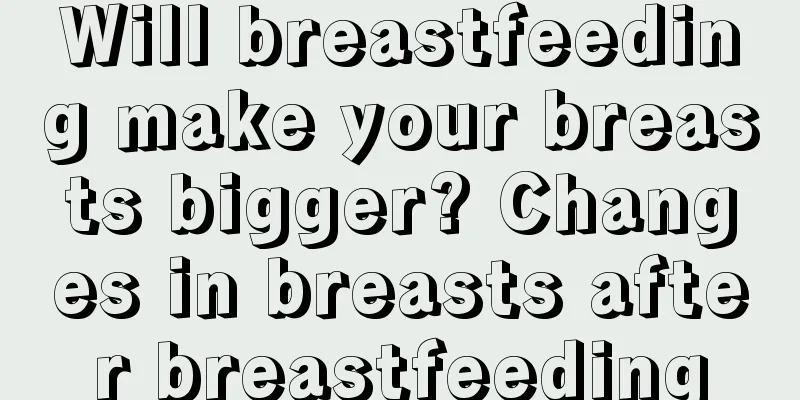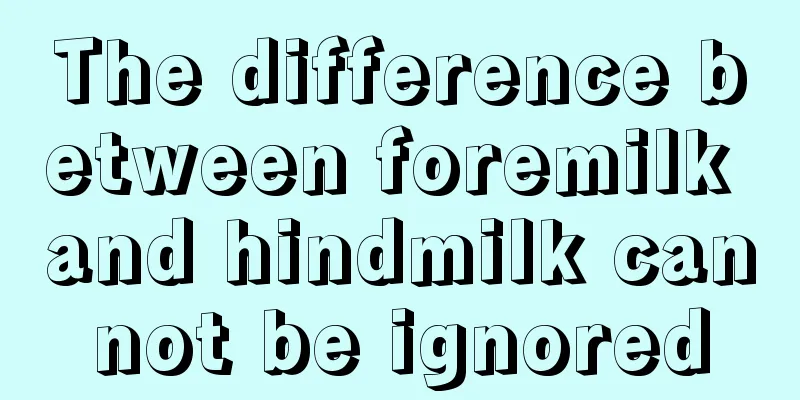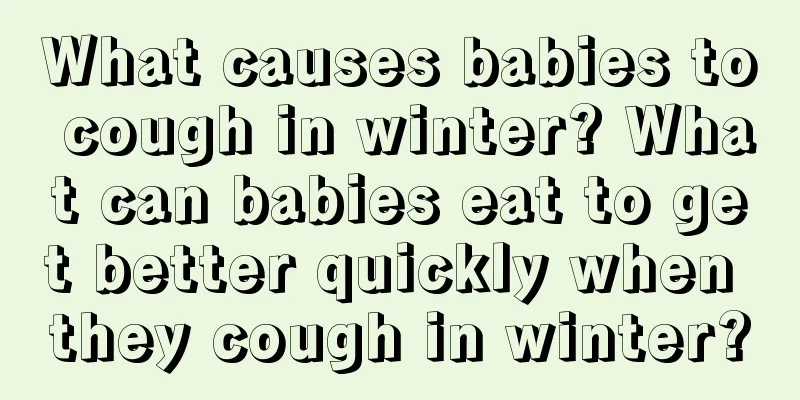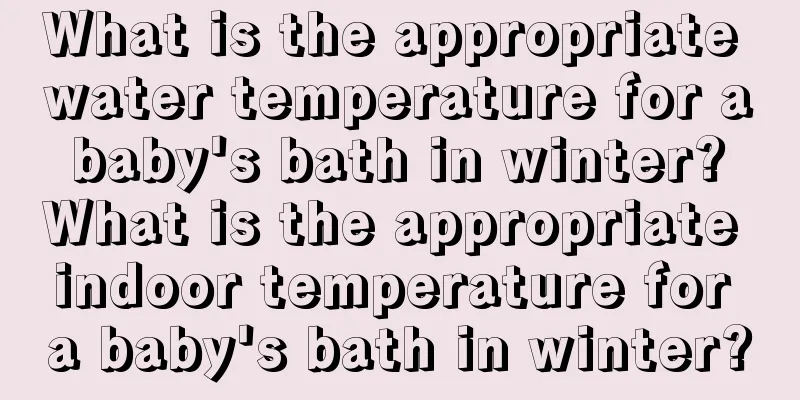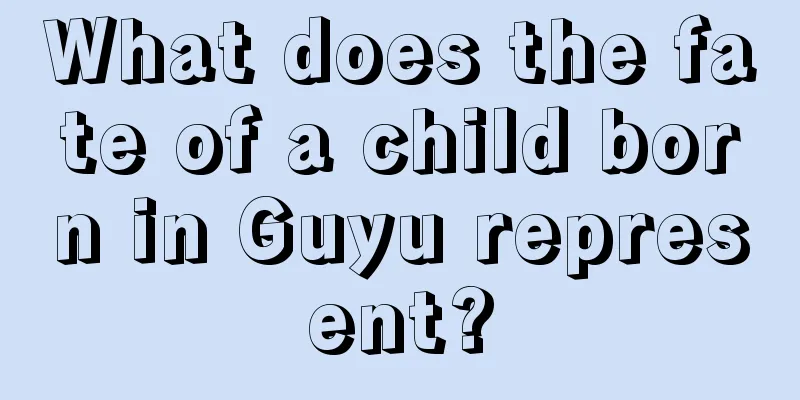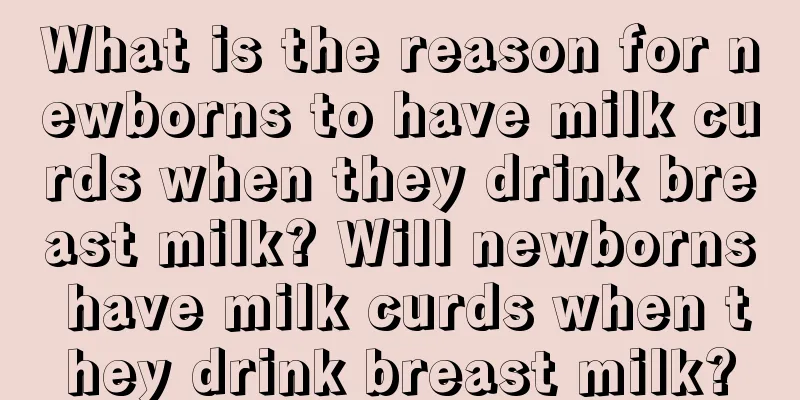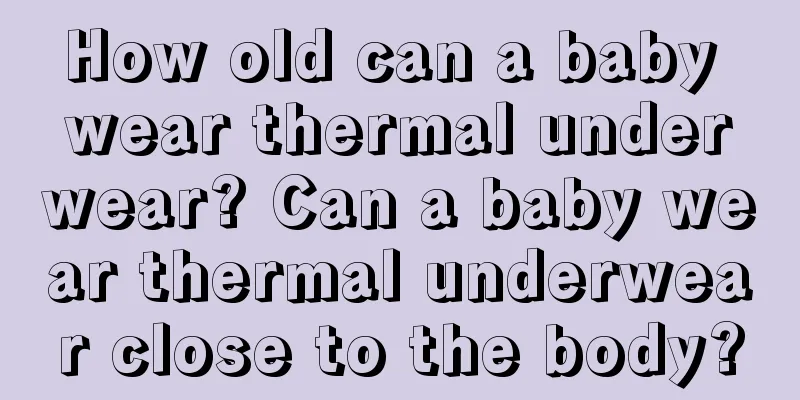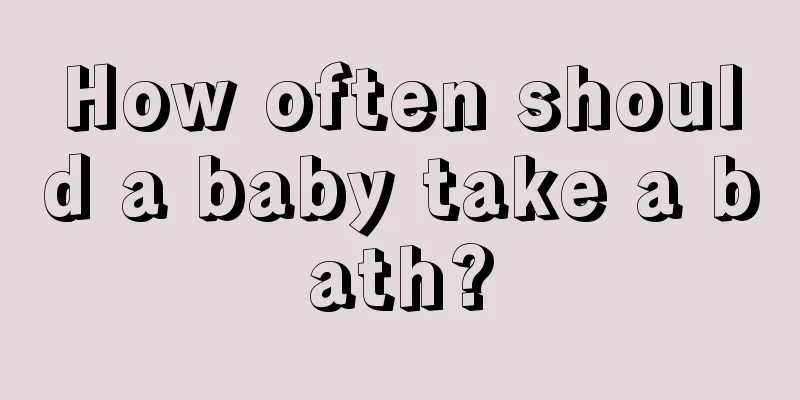Why do babies spit bubbles? Why do babies spit bubbles?
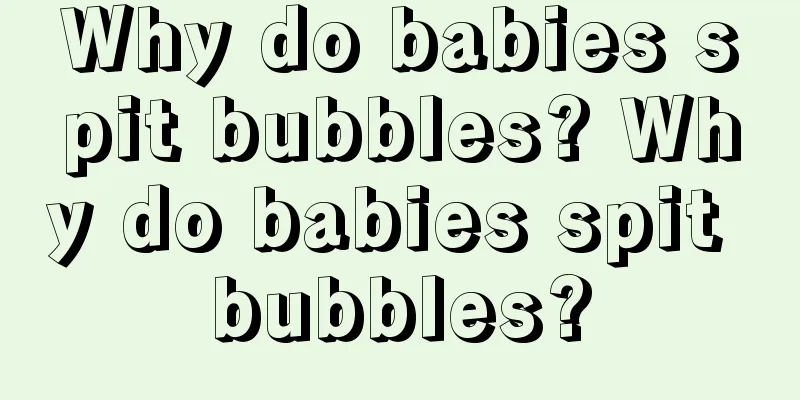
|
The baby is young, so we should pay attention to many of his symptoms. Generally, after the child is 3 months old, the baby will often spit bubbles. Most babies have this phenomenon. Why does the baby blow bubbles?Many babies will have bubbles coming out of their mouths, especially after 3 months, when the symptoms become more obvious. Bubble blowing period 1: salivary gland development period The salivary glands of newborns are immature and produce little saliva. After 2-3 months, the salivary glands of babies develop more and more and secrete more saliva. However, babies at this time are not very good at swallowing, so the increased saliva will be discharged in the form of bubbles. In addition to spitting bubbles, babies at this time also have more and more oral movements, such as drooling and sticking out the tongue. These physiological phenomena will disappear on their own as the baby grows older and the swallowing function improves. Bubble blowing period 2: Teething period The second peak period for babies to spit bubbles is during the teething period, which is the period when babies drool most frequently. When the baby's deciduous teeth erupt, the small teeth push out of the gums and grow outward, causing mild discomfort in the gum tissue, stimulating the nerves on the gums and reflexively increasing the secretion of saliva. Since the baby is still young at this time and cannot swallow the saliva well, the phenomenon of drooling and spitting bubbles will be very obvious. As the baby grows and develops, the phenomenon of drooling will gradually decrease, especially for babies who develop faster, who will not drool when they are one and a half years old. Most of the others will stop drooling at the corners of their mouths and will not spit bubbles before the age of 2, as the muscle motor function gradually matures and the baby can effectively control the swallowing action. Why do babies spit bubbles?1. It may be teething, which happens to many babies. Some children may have itchy gums, and children who have early teething may have this phenomenon. It may also be that there is something in the child's mouth. Please observe carefully. If there is no other abnormality, just blowing bubbles, it's nothing, children of this age can also start to play, it's okay. 2. It may be a cold. If the baby spit bubbles, it may be a cold. When the baby is sick, the initial symptom of a cold in children may be spitting bubbles, and other symptoms are not typical. How to deal with baby spitting bubblesIf the bubbling is caused by disease, then the only solution is to receive treatment from a doctor. If the bubbling is caused by physiological factors, then parents should pay special attention to not letting saliva erode the baby's skin around the mouth: 1. Babies have a lot of saliva secretion, so parents need to clean the secretions around the mouth in time to avoid drool rash; 2. The saliva discharged by the baby should be wiped dry with a soft handkerchief or tissue. Do not wipe it hard to avoid damaging the skin and causing "secondary injury"; 3. It is not recommended to use wet wipes to wipe the baby's saliva, because the place where the baby drools will be damaged, and the substances contained in the wet wipes may irritate the baby's tender skin; 4. Babies in the teething period will also drool excessively. Parents can prepare a piece of soft cotton cloth and wipe the saliva with a soft towel dipped in warm water. Be gentle when wiping to avoid scratching the skin and causing infection. 5. Parents can put a soft bib on the baby's clothes, and change the baby's clothes soaked with saliva in time, and change and wash them frequently. What to do if your baby blows bubbles from his mouth1. Wipe in time. For babies who drool frequently, you should wipe the saliva from their mouths at any time. Do not wipe hard, just wipe the saliva gently to avoid damaging the local skin. Use warm water to clean the saliva, and then apply oil to protect the skin of the chin and neck. 2. Add complementary food in time to improve chewing ability. When adding complementary food (4-6 months) and starting to eat rice noodles, parents should consciously strengthen their ability to suck, suck, swallow and swallow. After the child grows teeth, try to give him less semi-liquid food or overcooked food, and choose something slightly harder (such as egg pancakes, etc.) to improve his chewing ability. The baby's mouth blowing bubbles is a manifestation of the baby's development and a normal phenomenon. It is recommended that parents can exercise the baby's oral muscle ability. |
<<: Why do children like to watch cartoons? What are the benefits?
>>: How can parents encourage their children to cheer up when they are in a bad mood?
Recommend
What should men eat during pregnancy to improve sperm quality?
Preparing for pregnancy is not just a woman's...
Do pregnancy test sticks have to be tested in the morning? Do pregnancy test sticks have to be tested in the morning?
The pregnancy test stick does not necessarily hav...
Teaching by example is the best educational concept
Children need their parents' care from a youn...
Can Dettol disinfectant be used to disinfect wounds? Can Dettol disinfectant be used to disinfect washing machines?
Dettol disinfectant has many uses. It can be used...
How to name a child with a two-character surname? How to name a child with a four-character name?
You must have heard of many strange names in your...
How old can a baby use Babyganics sunscreen? Can Babyganics sunscreen be used on newborns?
How old can a baby use Babyganics sunscreen? This...
Is it okay for a newborn to sleep alone? Should a newborn sleep with his parents?
Should newborn babies sleep with their parents? M...
How long does it take to deliver? What should I prepare for delivery?
Mothers whose due date is approaching can prepare...
Can 84 disinfectant be used to wash clothes? Can 84 disinfectant be used to bleach shoes?
84 disinfectant is generally a colorless or light...
Can pregnant couples have sex? What are the precautions for pregnant mothers?
Can a husband and wife have sex during pregnancy?...
Do I need to wear underwear during confinement? Will my breasts sag if I don't wear underwear during confinement?
Do you need to wear underwear during confinement?...
What should I do if I bleed during the third trimester of pregnancy? ...
Many mothers will experience bleeding during preg...
Is it necessary to sweat during the full moon? Can sweating during the full moon cure postpartum diseases?
Sweating during the full moon is a good way to ma...
What flavors does Shuke toothpaste have? Can Shuke toothpaste reduce inflammation?
It seems that Shuke toothpaste has more than one ...
How long after giving birth can you lose weight? The most effective way to lose weight after giving birth
After ten months of pregnancy, I finally gave bir...
